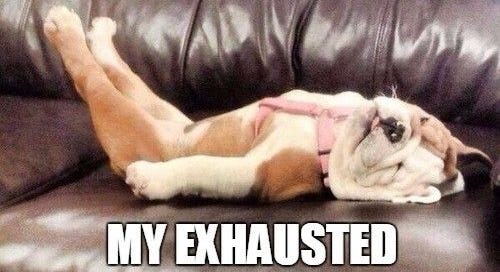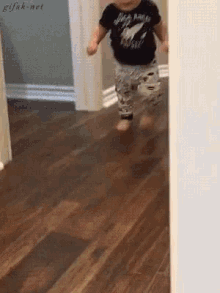Avoidance.
Which is the subject of the ‘permission to feel’ newsletter today!
How many of these resonate with your own memory stash?
“Don’t be silly”
“I’m sure they didn’t mean it”
“You’re just too sensitive”
When we have our emotions denied in this way by well meaning, powerful people in our childhood, we learn to adapt; hiding those parts which are apparently not ‘allowable’.
We don’t become equipped to process and learn from them. Additional thoughts soon become attached to those emotions, which perpetuate the challenging emotions even further. So we live with an underlying discomfort.
And this underlying discomfort can rise up into our consciousness in certain situations, or even at the thought of those situations, so we avoid:
Giving a speech at work.
Telling a friend that we are upset with them.
Going to events by ourselves.
Rather than subject ourselves to the conscious discomfort, we engage in a whole lot of behaviours to avoid it.
Totally understandable.
Who wants to feel something that they have no tools to manage, because they were never taught the tools?
Instead, we seek reassurance through people pleasing; we ruminate and procrastinate; become hypervigilant to try and head off a situation which may escalate and trigger our discomfort; engage in compulsive behaviour.
Exhausting.
Isn’t that just ironic? By avoiding, we can’t heal our wounds and we exhaust ourselves. We make it worse for ourselves.
You may have heard that the physiological experience of an emotion lasts 90 seconds, but of course, emotions last much longer that that in reality because of the thoughts that we attach to it.
So what can we do differently?
Observe the physiological impact - where are you feeling the feeling in your body?
Allow the emotion to be, this will help you to stop triggering further stressful emotions. You can do this by saying:
‘I notice that I am thinking xxxx. I accept all of this in this moment. Thank you mind.’
This helps to disrupt the thoughts so that you don’t become attached to them.
Then what may be helpful is to journal on it, asking yourself the following questions:
Are the thoughts that you are having true?
What would a person who has your best interests at heart recommend that you do about it?
What emotions do you have about this, and do those emotions have an underlying message for you?
Yet this all only deals with helping us understand cognitively the many reasons for our avoidant behaviour. We have to change the ‘felt’ sense too, the part that links back to the emotional neglect. Psychodrama, EMDR, somatic experiencing are all excellent ways to approach somatic healing.
I wrote this poem after working through some painful memories using somatic experiencing. I had done a lot of personal trauma work, but through this work I uncovered a deep grief about the reality of my emotional abandonment as a child. Whilst it was emotionally painful to process it, I stayed with the session and felt such a release!
As I stood at the shore of my memories
As I prepared myself for the waves
As the rollers crashed in with a thunderous roar
So did the saltiness of those days
I feared their size could drown me
I feared I’d be swept out in the waves
I feared for my life, for the heart of me
I feared it was the end of my days
For I’d given wide birth to the oceans
I’d swum in the lakes not the seas
I’d swum in the pools and the rivers
To tack my course with ease
I feared the depths would drown me
I feared I’d be swept out in the waves
I feared for my life, for the heart of me
I feared it was the end of my days
But oh! The waves were distraction!
They knock you, but don’t pull you down
It’s the current to watch, the riptide
The currents that want you to drown.
But oh! To know that the drowning
The strength of those currents deep down
Is where you’ll heal the yearning
Is where salvation is found.
If you have any further questions about this, let me know in the comments.
ALSO, just to throw a spanner in the works, sometimes avoidance is just a part of life and can actually be helpful and I want to offer a balanced view, because just as our coping strategies can cause us problems, they can also be areas of strength and growth.
Sometimes, avoidance leads to creative happenstance where something can bloom. Writer Austin Kleon writes about productive procrastination; how the side-lined doodles can be where creativity has the space and freedom to fly, often providing surprisingly positive results.
I guess the difference is in whether our avoidance feels like a retraction or expansion. If it is a retraction, leading to a diminished life through fear, then it’s worthwhile considering how to change that. If avoidance of something feels like rest and recuperation - a moving towards a state that is nurturing, then surely that is something to cherish.
In other news, series 4 of The Therapeutic Poet is now out.
I spoke to Dr. Ingrid Clayton about complex trauma.
We spoke about:
Trauma Bonding
Being on the receiving end of the silent treatment
Emotional abuse
Narcissistic abuse
Covert sexual abuse
Addiction
Complex trauma
Trauma responses
Toxic shame
Going from not having a voice, to reclaiming it
Parenting
The healing power of writing.
And I also spoke to NACOA ambassador Josh Connelly about addiction recovery, dysfunctional families and the importance of community.
Would love you to have a listen and let me know what you think!
Thanks as ever for subscribing. If you have enjoyed it please let other people know about it or show your support by buying my book! If you have already bought it please leave a review.
I'll be taking a week off next week due to half term, but will be back the following week.
That’s it for now, ‘til next time.
Jacky x





